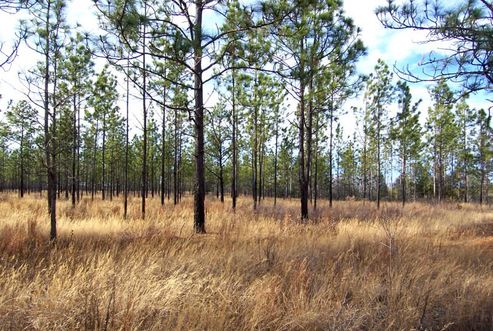|
With ecological systems being altered and assaulted at unprecedented scale and rate, it is time to increase our focus on ecological restoration and renewal. Our fragile ecological systems in the southern U.S. and across the entire Earth are damaged and imperiled. Preservation and conservation are not enough; we need to work more intensively to restore abused ecological systems and natural habitats. In an essay by conservation biologist and Aldo Leopold biographer Curt Meine, re-published in the summer 2018 issue of The Leopold Outlook, the author reminds us that the relationship between humans and the world is reciprocal. “As we work to heal the Earth, the Earth heals us.” Meine recalls that Aldo Leopold, the father of wildlife conservation in America and pioneering figure in ecological restoration in the 1930s and 40s, noted that “Conservation, viewed in its entirety, is the slow and laborious unfolding of a new relationship between people and land.” Meine observes, “Conservation has evolved continually over the last century in response to the complex realities of social and environmental change. . . . Now, however, conservation finds itself caught in an intense and persistent vortex. Much of the debate involves our understanding of ecosystem change, the human role in affecting those changes, and the perils and potential of new technologies to respond to change.” <<Continued>>  Photo by Julie Moore Photo by Julie Moore Ecological restoration is the practice of working to rebuild biological diversity, ecological function, and natural beauty in radically altered or heavily degraded landscapes. Leopold came to see conservation in terms of the healthy functioning of land as an entire ecological community, with special urgency for sustaining its co-evolved native biological diversity. Late in his life, Leopold adopted the phrase “land health” to encompass what most concerned him. He proposed that land health “expresses the cooperation of interdependent parts: soil, water, plants, animals, and people. It implies collective self-renewal and collective self-maintenance.” Since Leopold’s time, the rate of global environmental change has accelerated dramatically, altering the context and scope of restoration that is needed. Now we see what Leopold called “land health” in terms of resilience, restoration, and responsibility. “Land restoration and stewardship, and caring for people and our human communities, remain utterly essential if we are to build the world we know we need,” says Meine, “for generations to come. . . . Conservation’s unique role and responsibility is to see connections within and across landscapes. Restoration is relevant at every point along the spectrum of human impacts . . . but restoration will mean, and require, different things at different points along that spectrum. Restoration now seeks to integrate and meet multiple social and ecological goals . . . and is increasingly undertaken through new modes of collaboration” and coordination. Ecological restoration will continually evolve, and it will be serving a land ethic that is itself continually evolving. Meine’s essay appears in the summer 2018 issue of The Leopold Outlook, available from the Aldo Leopold Foundation. --Chuck Roe, President Southern Conservation Partners
0 Comments
Leave a Reply. |
When we see land as a community to which we belong, we may begin to use it with love and respect.... Conservation, viewed in its entirety, is the slow and laborious unfolding of a new relationship between people and land." There is in fact no distinction between the fate of the land and the fate of the people. When one is abused, the other suffers. From the PresidentSCP President Chuck Roe looked at land conservation along the route of John Muir's "Southern Trek." About ViewpointThis blog offers views of our Board and partners. We invite your viewpoint on the following questions: Archives
April 2024
Categories
All
|

 RSS Feed
RSS Feed